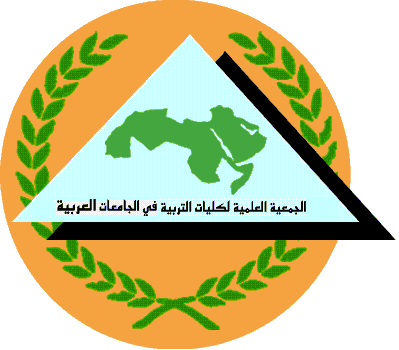Association of Arab Universities Journal for Education and Psychology

Abstract
تهدف هذه الدراسة بشكل رئيس إلى الكشف عن مدى ممارسة الحوكمة في المدارس الثانوية في فلسطين من وجهة نظر المعلمين والمعلمات فيها ، ولجمع البيانات أعد الباحث استبانة فحص صدقها من قبل متخصصين وبمعامل ثبات (0.87)، وجرى توزيعها على عينة الدراسة البالغة (101) فردة بنسبة (25%) من مجتمع الدراسة، ولتحقيق أهداف الدراسة استخدم الباحث المنهج الوصفي التحليلي وبرنامج الرزمة الإحصائية للعلوم الاجتماعية (SPSS)، بما فيها المتوسطات الحسابية والانحرافات المعيارية وتحليل التباين الأحادي للتحقق من صحة فرضيات الدراسة، حيث توصلت الدراسة إلى نتائج من أهمها:
- وجود ممارسة للحوكمة في المدارس الثانوية في فلسطين بدرجة مرتفعة على مجال ممارسة الإدارة المدرسية للحوكمة في المدارس الثانوية في فلسطين من وجهة نظر المعلمين والمعلمات فيها على الأبعاد كافة )الشفافية، المساءلة، التمكين، العدالة).
- وجود ممارسة للحوكمة في المدارس الثانوية في فلسطين بدرجة مرتفعة على مجال الصعوبات التي تعوق ممارسة الإدارة المدرسية للحوكمة في المدارس الثانوية في فلسطين من وجهة نظر المعلمين والمعلمات فيها على الأبعاد كافة )الصعوبات التنظيمية والبشرية، والمادية).
- وجود ممارسة للحوكمة في المدارس الثانوية في فلسطين بدرجة مرتفعة جدة على مجال متطلبات ممارسة الإدارة المدرسية للحوكمة في المدارس الثانوية في فلسطين من وجهة نظر المعلمين والمعلمات فيها على الأبعاد كافة )المتطلبات التنظيمية، والبشرية، والمادية).
- عدم وجود فروق ذات دلالة إحصائية عند مستوى الدلالة (α=0.05) في استجابات أفراد عينة الدراسة حول مدى ممارسة الحوكمة في المدارس الثانوية في فلسطين تعزى إلى متغيرات الجنس، والعمر، وسنوات الخدمة، والمؤهل العلمي).
This study aimed to find out the extent of governance practice in secondary schools in Palestine from teachers' viewpoint . To collect the necessary data, the researcher prepared a questionnaire which was valid and constant with coefficient 0 .87 . The questionnaire was distributed to the sample of study which consisted of 101 teachers with percentage 25% of the study population . To test the study hypothesis, the researcher used the analytical descriptive methodology and the statistical package for social sciences (SPSS), including arithmetic mediations, standard deviations and ANOVA . The study revealed:
- There is a high degree of governance practice in secondary schools in Palestine from teachers' viewpoint at statistical level (α≤0 .05) related to the axis of governance practice in secondary schools at all dimentions (Transparency, Accountability, Empowerment, Justice) .
- There is a high degree of governance practice in secondary schools in Palestine from teachers' viewpoint at statistical level (α≤0 .05) related to the axis of the difficulties that obstruct governance practice in secondary schools at all dimention (Organizational difficulties, Humanitarian, and Material) .
- There is a very high degree of governance practice in secondary schools in Palestine from teachers' viewpoint at statistical level (α≤0 .05) related to the axis of the requirements of governance practice in secondary schools at all dimention (Organizational requirements, Humanitarian, and Material) .
- There are no differences in the teachers' responses toward governance practice in secondary schools in Palestine from teachers' viewpoint at statistical level (α≤0 .05) attributed to the variables (Sex, Age, Period of Service, Scientific Qualification) at statistical level (α≤0 .05) .
In the light of study results, the researcher recommends:
- Improving communications channels between the top management at ministry of education and schools administrations .
- Participating schools principals in decisions making related to schools work and considering integrity, justice, and equity.
- Applying accountability principle in schools and specifying its mechanisms .
- Providing schools with communications and information technology means .
- Urging for further studies in this field .
Recommended Citation
قرواني, خالد نظمي
(2022)
"مدى ممارسة الحوكمة في المدارس الثانوية في فلسطين من وجهة نظر المعلمين والمعلمات. The extent of governance practice in secondary schools in Palestine from teachers' viewpoint,"
Association of Arab Universities Journal for Education and Psychology: Vol. 14:
Iss.
4, Article 4.
Available at:
https://digitalcommons.aaru.edu.jo/aaru_jep/vol14/iss4/4

